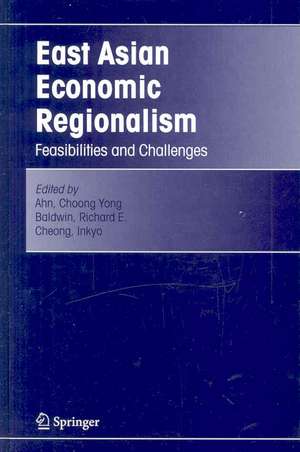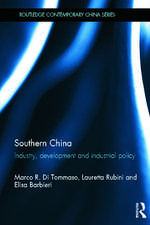East Asian Economic Regionalism: Feasibilities and Challenges
Editat de Choong Yong Ahn, Richard E. Baldwin, Inkyo Cheongen Limba Engleză Hardback – 20 oct 2005
| Toate formatele și edițiile | Preț | Express |
|---|---|---|
| Paperback (1) | 638.24 lei 6-8 săpt. | |
| Springer Us – 28 oct 2010 | 638.24 lei 6-8 săpt. | |
| Hardback (1) | 643.00 lei 6-8 săpt. | |
| Springer Us – 20 oct 2005 | 643.00 lei 6-8 săpt. |
Preț: 643.00 lei
Preț vechi: 756.47 lei
-15% Nou
Puncte Express: 965
Preț estimativ în valută:
123.03€ • 128.47$ • 101.60£
123.03€ • 128.47$ • 101.60£
Carte tipărită la comandă
Livrare economică 15-29 aprilie
Preluare comenzi: 021 569.72.76
Specificații
ISBN-13: 9780387243306
ISBN-10: 0387243305
Pagini: 224
Ilustrații: XXIII, 194 p.
Dimensiuni: 156 x 232 x 18 mm
Greutate: 0.49 kg
Ediția:2005
Editura: Springer Us
Colecția Springer
Locul publicării:New York, NY, United States
ISBN-10: 0387243305
Pagini: 224
Ilustrații: XXIII, 194 p.
Dimensiuni: 156 x 232 x 18 mm
Greutate: 0.49 kg
Ediția:2005
Editura: Springer Us
Colecția Springer
Locul publicării:New York, NY, United States
Public țintă
ResearchDescriere
Economic regionalism has become a worldwide phenomenon. Since the Asian financial crisis, East Asian countries are accelerating the ongoing market-driven economic integration as well as institutional economic integration. The question is whether East Asia can reach an East Asian FTA (EAFTA), which is the first step towards institutional economic integration.
East Asian Economic Regionalism attempts to analyze the feasibilities of economic integration in East Asia and to discuss emerging economic integration efforts in East Asia with special reference to an East Asian FTA. Although economic integration is desirable economically, positions and approaches of each regional economy toward East Asian economic integration may differ depending on the circumstances of the countries concerned. East Asian Economic Regionalism provides diverse positions on East Asian economic integration by ASEAN countries, as well as the Northeastern countries of China, Japan and Korea. The volume also provides economic assessment of EAFTA and evaluates East Asian economic integration. East Asian Economic Regionalism may be the first book on East Asian economic integration with positions toward economic integration of major players in the region.
East Asian Economic Regionalism attempts to analyze the feasibilities of economic integration in East Asia and to discuss emerging economic integration efforts in East Asia with special reference to an East Asian FTA. Although economic integration is desirable economically, positions and approaches of each regional economy toward East Asian economic integration may differ depending on the circumstances of the countries concerned. East Asian Economic Regionalism provides diverse positions on East Asian economic integration by ASEAN countries, as well as the Northeastern countries of China, Japan and Korea. The volume also provides economic assessment of EAFTA and evaluates East Asian economic integration. East Asian Economic Regionalism may be the first book on East Asian economic integration with positions toward economic integration of major players in the region.
Cuprins
Northeast Asian Views on an EAFTA.- China’s Approach to an Institutional Regional Arrangement.- East Asian Free Trade Agreement: Strategic Aspects for Japan.- Evaluation of Recent Progress of FTAs in East Asia — A Korean Perspective.- Southeast Asian Views on an EAFTA.- An East Asian FTA: A New Frontier of Economic Cooperation in East Asia.- Indonesia’s FTA Policy and Its Perspectives on an East Asian FTA.- An East Asia FTA: A Malaysian Perspective.- An East Asian FTA: A Philippine Perspective.- Assessment of East Asian Regionalism.- Estimation of Economic Effects of FTAs in East Asia — CGE Approach.- Asian Regionalism: Promises and Pitfalls.- EU’s Strategy Towards East Asian Integration and Regionalism.
Caracteristici
Includes supplementary material: sn.pub/extras














